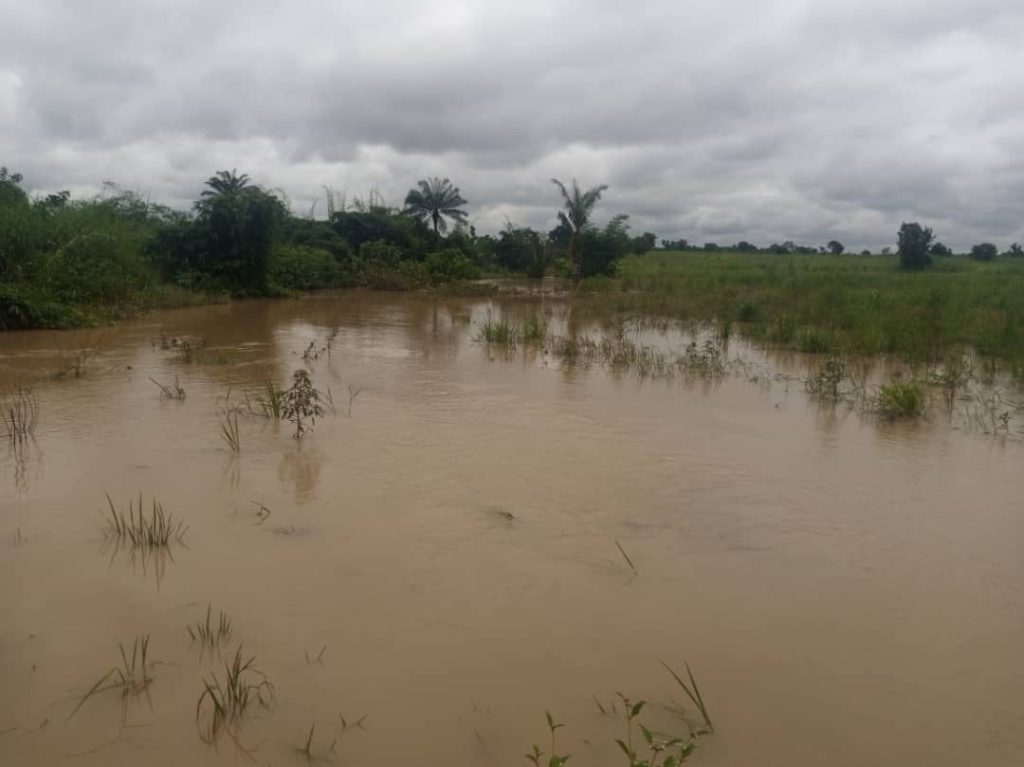Heavy Rains Destroy Rice Farms in Ebonyi, Threaten Upcoming Harvest
Floods damage rice farms in Ebonyi, leaving local farmers in Izzi LGA counting heavy losses.
Continuous rainfall threatens harvests and may cause rice shortages, raising fears of future price hikes.
Several rice farmers in Izzi Local Government Area of Ebonyi State are counting their losses as persistent rainfall and severe flooding wreak havoc on their farmlands.

Mr. Emmanuel Nwali, a well-known rice farmer in the area, revealed that close to half of his farm had been overtaken by floodwaters.
“The flood has undone most of what we’ve worked for. What remains is already turning yellow,” he said. “It’s been raining almost every day since mid-July. A good harvest is now unlikely.”
Another local farmer, Mr. Chinedu Okenwa, reported that his nursery beds were completely washed away, leaving him unable to transplant and facing significant losses.
“I’ve lost major resources,” he explained. “There’s no nursery to transplant from. If things continue this way, rice yields will drop drastically, and prices may spike by next year. It’s a tough situation.”
Agricultural expert Dr. Paul Onwe explained that rice is particularly vulnerable to flooding, especially in low-lying, swampy regions.
“Heavy and sustained rainfall can cause stunted growth, nutrient loss, and fungal infections,” he noted.
Onwe urged farmers to consult seasonal weather forecasts and early warning systems provided by the Federal Government before planting, to better plan their activities.
An official at the Ebonyi State Ministry of Agriculture, who spoke anonymously, confirmed that the government is monitoring the situation closely and collecting data from affected communities to determine the next steps.
According to forecasts by the Nigerian Meteorological Agency (NiMet), Ebonyi is among the states expected to experience significant flooding during the 2025 rainy season.
As one of Nigeria’s top rice-producing states, Ebonyi’s challenges are already raising concerns among rice sellers in Abakaliki markets, many of whom fear that prices may soar if harvests fall short.



